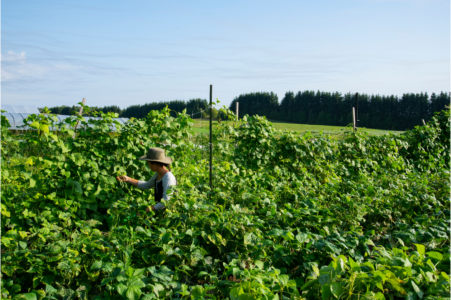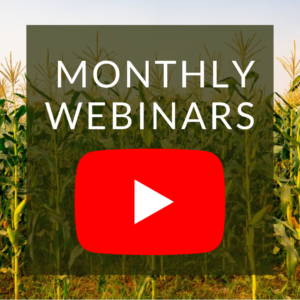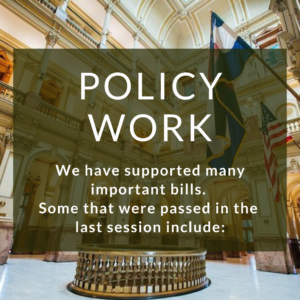Why Regenerative Agriculture & Local Food?
When we talk about climate change, a lot of people’s minds immediately associate this phenomenon with industries such as oil, gas, electricity, and transportation. But one of the largest contributors to climate change is something for which we will never be able to reduce demand: food. Food brings people joy, brings people comfort, and brings people together–however, producing meals for humanity’s ever-increasing population takes a toll on our Earth.

Greenhouse Gas Emissions from Agriculture are Mile High.
Worldwide, the Food and Agricultural Organization of the United Nations estimates that methane emissions from agricultural livestock contribute to more than 14 percent of global greenhouse gas (GHG) emissions caused by human activity. In the United States, the Environmental Protection Agency estimates that agriculture is responsible for approximately 10 percent of GHG emissions, nine percent in Colorado. Predictions for future emissions are expected to worsen as the population grows and the Earth’s capacity to grow food diminishes. Predictions tell us that agricultural emissions will comprise up to 30 percent of total global GHG emissions in just 30 years from now.
But there is hope–While the agricultural industry may be one of the biggest emitters of greenhouse gases, it also has an amazing capability that other industries lack:Agriculture can be as effective a carbon sink as it is a damaging source of emissions.
Growing food so that it absorbs carbon from the air is just one way we can revolutionize our food system. But there’s more to focus on than just greenhouse gases.
In order to address our current food system’s failings, we want to build a regenerative and localized food system. To do this, we need to include farmers, gardeners, land managers, schools, sustainable foragers, and an informed public of consumers who want to make a difference. Growing more of our food locally and without petro-chemical fertilizers and herbicides is healthier for our bodies, gentler on our planet, and builds a community that’s more resilient to climate and fossil fuel price shocks without relying on a fossil-fueled food system.
By cultivating the land with sustainable practices and following in the footsteps of traditional Indigenous farmers and methods, we can simultaneously capture carbon, take care of our soils and watersheds, improve human and animal health, address food access, and create a more just and equitable food system. Navigate to our education and resource page below to learn much more about regenerative agriculture and local food systems.
Learn About Evolutionary Food Gardening in a Changing Climate
Let’s localize our food system together.
350 Colorado’s Regenerative Agriculture and Local Food Systems Committee aims to address these issues in Colorado. Our committee’s mission is to cultivate a new focus in Colorado where regenerative agriculture is not only a primary and lasting community goal, but also a model for other places. Through action-oriented tactics — like advocating for regenerative agriculture policies and projects, education and awareness, and partnering with other local organizations and coalitions — our team is dedicated to creating equitable change in Colorado’s agricultural system for a more resilient climate and community. We are a group with diverse interests and backgrounds, and everyone is welcome to join the action and discussion.
Click the photos below to see some of our past work!
We host monthly webinars on important topics related to regenerative agriculture and local food. We talk with leaders in the field to try to increase awareness on key issues. Find info on our upcoming webinars on our Facebook page or watch past webinars here.



